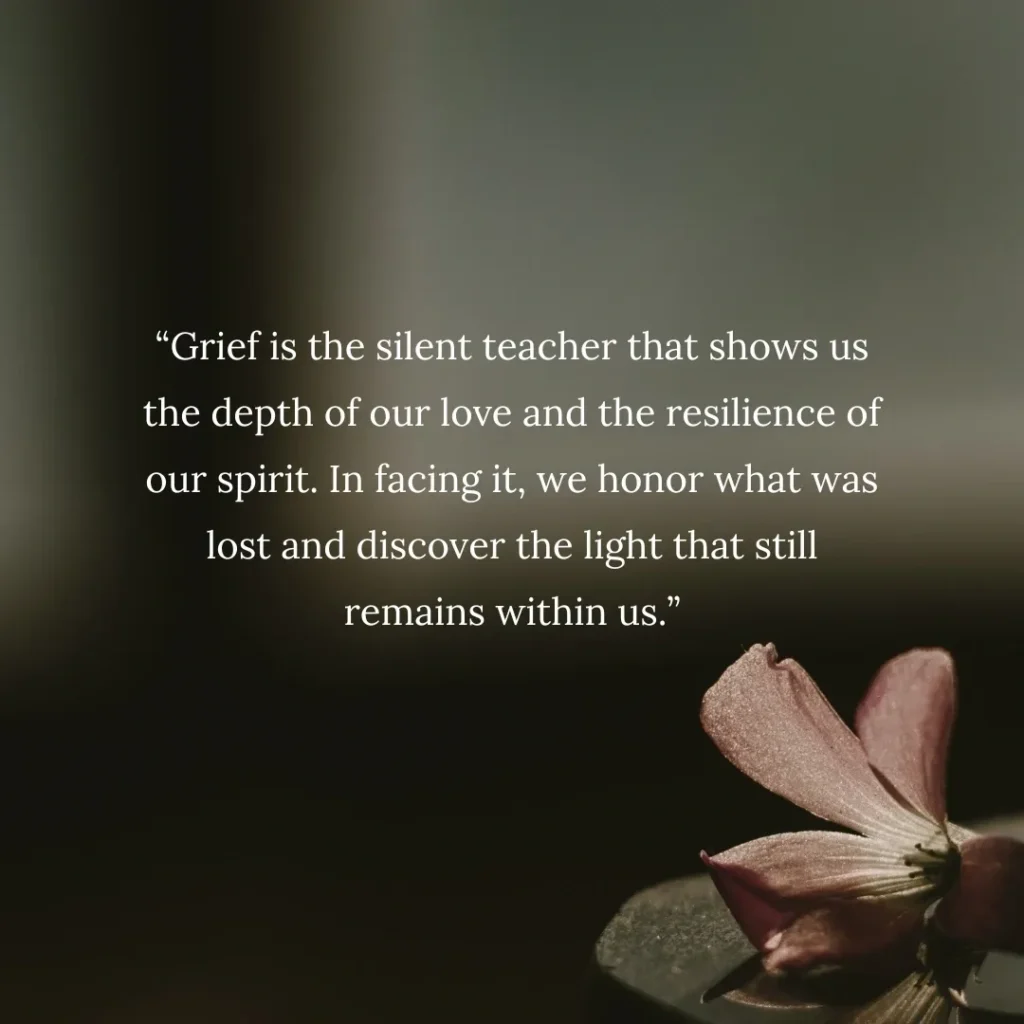Grief is a universal experience, yet for those of us on a highly attuned spiritual path, it carries layers of depth that can feel almost impossible to express. The loss of a loved one, a cherished dream, or even an identity we once held dear can shake the very core of who we are. When you’re deeply connected to your spirit and sensitive to the unseen, grief doesn’t just touch the heart—it reverberates through the soul, weaving itself into the fabric of your entire being.
The Unfiltered Reality of Grief
Grief for a spiritually gifted person isn’t just sadness or mourning; it is an all-encompassing experience. The pain is excruciating, not only because of the deep emotional connection but also because of the heightened awareness of the energies and the void that loss leaves behind. It’s the silence that echoes where laughter once filled the room, the space between breaths that once held words, and the knowing that life, as it once was, has changed irreversibly.
Many spiritual paths teach us to lean into love and light, to search for lessons and growth even in our hardest moments. Yet, there are times when grief makes even the brightest light seem unreachable, when all the wisdom in the world cannot soothe the hollow ache that loss brings. During these times, it’s important to honor the human experience of pain, recognizing that it is not a sign of weakness but a testament to the depth of your love and your capacity to feel.
The Spiritual Layers of Grieving
For those on a spiritual journey, grief is more than the immediate pain of loss; it’s a process that touches every part of your being. You might find yourself not only mourning the person or situation but also grappling with the existential questions that arise: Why did this happen? What is the lesson? What does this mean for my journey? These questions can swirl around relentlessly, creating a storm of spiritual searching that leaves you exhausted and seeking solace.
Grieving on a spiritual path also means being hyper-aware of the energy shifts around you. You may sense the lingering presence of a loved one, receive signs or messages, or feel the energy of their spirit in your most tender moments. While this can be comforting, it can also be confusing, amplifying the longing to bridge the gap between this realm and the next. It’s a sacred connection that brings comfort but also serves as a reminder of the loss.
The Excruciating Path of Healing
Healing from grief is not linear. It is raw, messy, and sometimes feels endless. It is a process that requires patience, self-compassion, and surrender. The pain can be sudden and overwhelming, as if a tidal wave has come crashing in, sweeping away every ounce of strength you thought you had. It is in these moments that surrender becomes not just an option but a necessity.
Surrendering to the grief does not mean giving up—it means allowing yourself to be present with the pain without judgment. It means giving yourself permission to cry, rage, and feel the depth of your loss without trying to rationalize or spiritualize it away. It is in the raw acceptance of grief that true healing begins to emerge, even if only in whispers.
Tools for Navigating Grief on a Spiritual Path
1. Honor Your Emotions: Allow yourself to feel without needing to explain or justify your grief. Emotions are sacred teachers, and denying them only prolongs the pain.
2. Connect with Your Spirit Guides: If you feel called to do so, sit in quiet meditation and ask your spirit guides or higher self for comfort. Sometimes, a gentle whisper or a warm feeling of reassurance can remind you that you are not alone.
3. Embrace Rituals for Healing: Light a candle in memory of what you’ve lost, create an altar with items that bring you peace, or write a letter to your loved one or to yourself. These rituals can provide a sense of closure and connection.
4. Stay Grounded: Grief can make you feel detached and disconnected. Practice grounding exercises, such as walking barefoot on the earth, deep breathing, or engaging in gentle bodywork to bring yourself back into the present moment.
5. Seek Support When Needed: While solitude can be healing, don’t isolate yourself for too long. Reach out to those who understand your journey, whether that’s friends, family, or a spiritual community.
Finding Meaning in the Pain
One of the hardest aspects of grief is finding meaning in the pain, especially when the loss feels senseless. It’s important to know that finding meaning doesn’t mean justifying or rationalizing the loss; it’s about finding ways to carry forward the love and lessons that your relationship or experience brought into your life. It’s about honoring what was lost by nurturing your own growth and journey in its memory.
Grief transforms us. It breaks us open, but in that breaking, it also offers an opportunity for rebirth. The process is neither quick nor easy, but with time, you may begin to see how the cracks left by loss are where the light starts to seep in. And as you heal, you carry that light forward, honoring both the pain and the love that inspired it.
A Personal Note from Me
As someone who has walked the path of deep loss, I know the heaviness of waking up to a world that feels emptier than it once did. I’ve experienced losses more than I can count, and my heart has been broken—only to, when it felt mended, break again from the loss of someone I love deeply. Yet, in my soul’s lessons, I was meant to learn so much more through the excruciating pain that loss leaves behind. I understand the moments when grief is so raw that it takes your breath away, when the spiritual tools you once found comfort in seem distant and ineffective.
But I also know that there is strength in allowing yourself to be human, in letting yourself break so that you can rebuild stronger, wiser, and more attuned to the fragile, beautiful nature of life. Your grief is valid. Your journey is sacred. Let yourself feel, heal, and be held by the love and memories that will always remain. You are not alone on this path, and your light, even in moments of darkness, continues to shine.
With all my love,
Michelle

